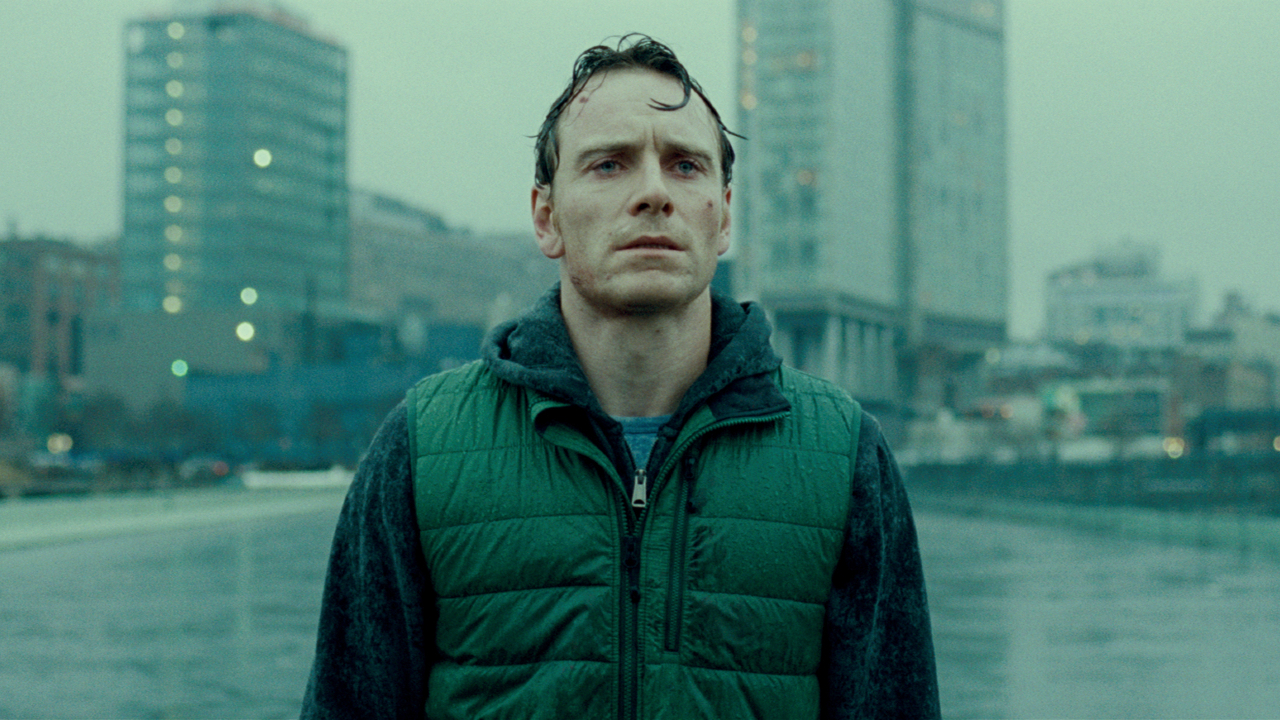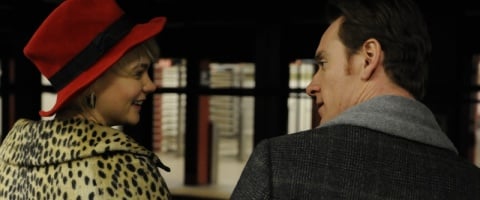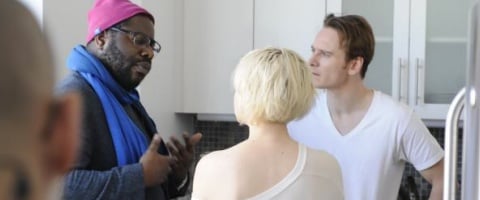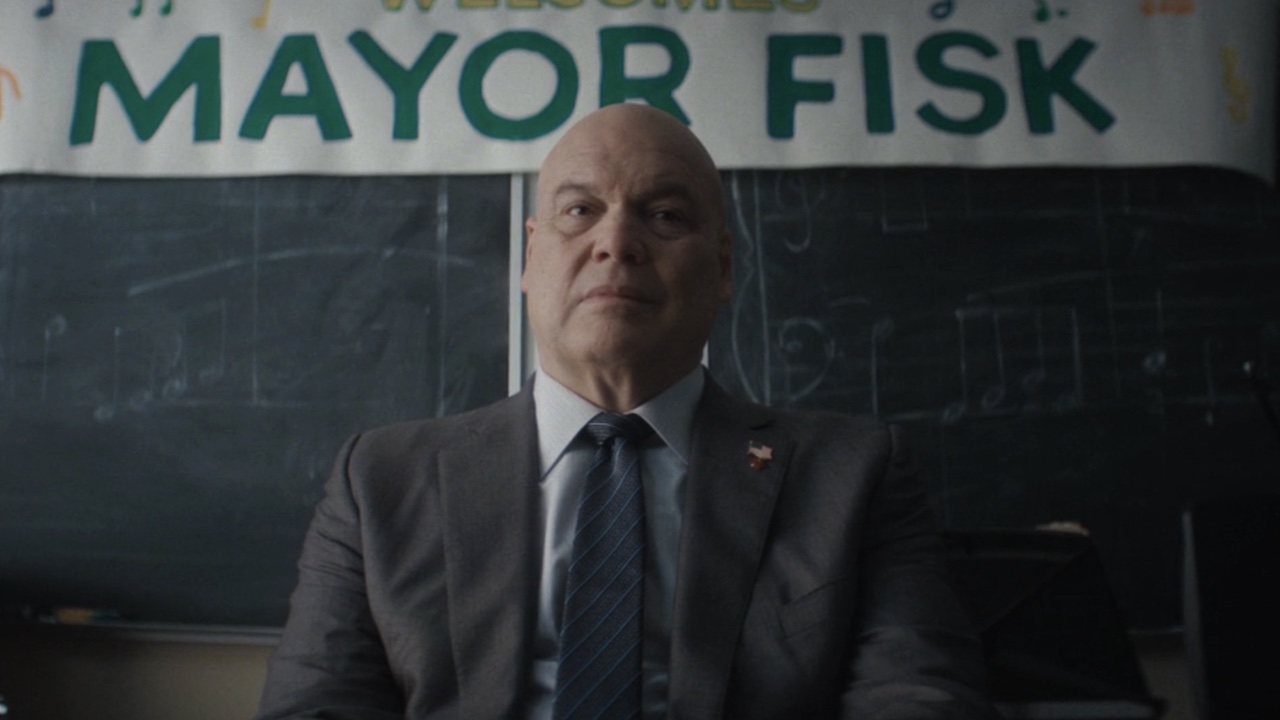Shame Director Steve McQueen On Coincidences And Ugliness In New York City

Your Daily Blend of Entertainment News
You are now subscribed
Your newsletter sign-up was successful
Watching the movies of Steve McQueen, the British director behind Hunger and now Shame, you're forced to slow down a little bit, to get into the deliberate pace of the film and stop expecting things to progress as frantically as they might in a more traditional film. Talking to McQueen, on the other hand, is the opposite-- he speaks fast, and speaks constantly, and will move from an idea suggested by your question to something totally different with no warning at all. It's thrilling to try and keep up with him, especially when you've only got a 15 minute interview and a lot to talk about.
In Shame McQueen once again directs Michael Fassbender in a no-holds-barred performance, this time playing a sex addict who lives an ostensibly successful life in New York City but is completely ravaged by his addiction. Shot entirely on location in New York, using a lot of modern architecture and posh locations, Shame looks like no New York movie you've ever seen, but McQueen swears he wasn't thinking about background at all. Watch him completely shoot down my first question about possible visual themes of the movie, then talk about why he explained so little about the characters and their back story, how they came up with the title, and why Shame and his next film 12 Years A Slave, despite their Yankee settings, aren't necessarily American movies. Shame is out in limited release this weekend.
Usually New York movies make me homesick, butt his movie had the exact opposite effect. The locations, with all the modern architecture, are so chilly and isolating, and they're all so similar. It seems that must have been a deliberate effort on your part.
No, not really, not at all. I wasn't thinking about background, I was thinking about ritual. I was thinking about where Brandon lives, where he'd go for his takeout food, how he'd walk to the subway, how he'd go to work. It was meticulous planning of how he would get from A to B.
So it's a result of where the neighborhoods are, not what they look like.
My focus is the character. My focus is Brandon. And that's it really. How he exists, what he would do, how he would walk. There's been a lot of talk about the movie and New York and landscape, but it was never a self-conscious situation.
So you were really rigorous about the geography, when a lot of people who shoot in New York aren't.
Your Daily Blend of Entertainment News
I love that because it makes my job easier. You have these beautiful things you have to deal with, and sometimes ugly things you have to deal with. That's part of our experience anyway. A lot of times in New York people live and work in the sky. You're always in the perspective, there's always a vista. You're always in the perspective of the city. Huge glass windows, apartments, hotels. I think sometimes it can make you feel quite lonely in a strange way. Who are you within this huge bloody city? And it is beautiful, because you're actually in a frame within a frame.
In the shot of him on the West Side Highway in the end, and you put him in contrast with the city from way down low, as opposed to in the sky.
For me it was a great, wonderful coincidence, it was bucketing down with rain that day, it was awful but fantastic for us. You have to embrace it, you have to deal with it. It may force you to make wonderful decisions. For me, that's cinema. I don't want to make TV commercials. So I wanted Brandon at that point, he needed some situation of distance. On the ground there's always a blockage of view, so the whole idea of expanse. I love the idea of the broken jetty, for me they're almost like broken people. It was one of those beautiful things.

You went through the trouble of actually shooting on the subway, which almost nobody does.
It's a little bit expensive, bur the transport people are very accommodating.
Why did it feel necessary to shoot on the actual subway?
Like I said before, you want to do the real thing. You don't want to avoid things, because it's a reality of what you need to get. The ritual is beautiful-- it's difficult, but it is what it is. And also it's underground and you're confronted with people. In London it's the same, you're on the underground, people, coincidence, it's beautiful. In New York with the grid system, you have a lot of coincidences. Things happen here-- it allows for more spontaneity. The ritual of going to work, often you meet the same people all the time. I love that, the possibility. It's wonderful that this ritual of courtship happens on the train.
The title of the movie is such a simple word, and it's enigmatic because it could mean so many things.
It was a common word we heard from people with this addiction. When they went on sexcapades, 72 hours watching porn or something, and when they would come down from that they would have this sense of self-loathing. And to dissipate that they would do it again. All these people talked about shame, and I thought that had to be the title. Of course, when you get that word, you mull it around in your head a little while. It's a one-word title like Hunger, and the next film [12 Years A Slave] thank God is more than one word.
Obviously it ties into Brandon and his affliction, but it also ties into Sissy in some way, the idea of their back story and the way it's kept so deliberately unclear to us.
Again, in realty that would never happen. We've met for the first time, you're not going to tell me your whole story, I'm not telling you my whole story. In the movies, everyone says oh, I did this when I was a kid-- no one talks like that. I wanted the situation where when you walk into the movie, it's already running, and when you leave the movie it continues. The whole idea of popping in as an audience into this movie, we bring our history, our past and our present, and we sit down and can decide what possibly happened. I wanted to make a situation that was familiar.

Do the actors know what the back story is?
They have an idea. And sometimes their back stories are slightly different from each other. But we all talked about it. I don't hire actors, I works with actors to get these performances. The camera can do so much, but it's all about how you interpret things. The highest form of acting is silent movie stars-- they say so much, and you know what they're saying through gesture. When we talk in our daily lives, we're talking shit most of the time, it's nothing true. It's to get through a day, to fill time, and we hardly ever say what we often feel. Maybe to your therapist or very closest friend. But in a day it's just a way of getting by. I wanted that familiarity of how people move and stuff. What I want my movies to be, I want the screen to be a mirror. When you sit down you see yourself.
Even though you're telling stories, at least in your first two movies, that are fairly extreme situations? It's not something that everyone will automatically recognize.
Maybe not an IRA prisoner, but surely Brandon, he's extreme, but at the same time we can identify with him or the aspects of him, absolutely.
The next movie is another American movie that goes way back into the past. This movie tackled New York City really interestingly--
I don't think Shame or the next one is an American movie. They happen to take place here, and Shame i think people in Europe will understand it. I think 12 Years a Slave, it's about freedom in a way.
Even though it's so specifically rooted in American history?
I think Western cowboy films are specifically rooted in America, but they say so much about other things. Sure it takes place in America with American history, but at the same time it has to have a universality, or else there's no point. It has to have universality, which I'm very much looking forward to.
Staff Writer at CinemaBlend

